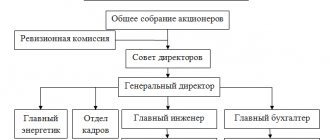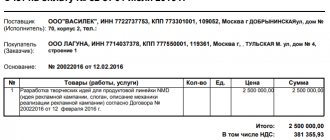03/22/2016 18,436 1 Reading time: 7 min. Rating:
Author
: Konstantin Bely
In the previous article, I talked about what competitiveness in the market is, and now I want to separately consider such concepts as fair and unfair competition . Surely everyone has heard about them, but not everyone can answer right away what this means. In this article, I will explain in clear and accessible language what fair competition is and what unfair competition is, and what the differences are between them.
Fair and unfair competition: what is it?
So, it is common knowledge that competition is one of the key drivers of a country’s economy globally and one of the main principles for developing one’s business locally. It is largely thanks to competition that economic growth occurs, goods and services are developed and improved, service quality improves, and new forms of business are created and developed.
But not everything is so wonderful. Since free market niches now practically do not exist, it is becoming increasingly difficult to compete. After all, there are more and more business participants, but the number of their clients remains the same, therefore, the level of competition is growing more and more, and not every businessman has the abilities and resources that would allow him to honestly win this competition.
Against this background, so-called unfair competition began to appear more and more often. What is it and how does it differ from conscientious - let's figure it out.
Fair competition, examples
Fair competition is the conduct of competition using fair and legal methods that do not violate generally accepted business norms.
The following examples of fair competition can be identified:
- Improving the quality of goods and services produced;
- Reduction of trade margins;
- Carrying out promotions and sales;
- Providing various types of discounts;
- Conducting advertising campaigns;
- Improving the quality of service;
- Warranty and post-warranty service of products;
- Gifts for customers;
- Free delivery, assembly, connection;
- Etc.
Unfair competition, examples
Unfair competition is the conduct of competition using methods that are contrary to the law, as well as generally accepted business norms.
Let's look at common examples of unfair competition of varying degrees of severity:
- T.N. “industrial espionage” - obtaining secrets of competitors in a dishonest manner;
- Counterfeiting competitors' products;
- Creation of brands that are in tune with popular ones (for example, ABIBAS, etc.);
- Any other actions that are aimed at evoking associations among buyers with competitors’ products (similar packaging, similar logo, etc.);
- Blackmail of competitors;
- Deliberate dissemination of negative information about competitors and their products;
- Damage to competitors' property;
- Taking possession of competitors' trade secrets and its illegal use;
- Deceiving consumers, providing them with false information about products;
- False information in advertising of goods and services;
- Etc.
In many countries, the concept of unfair competition is spelled out in legislation. As a rule, unfair competition is interpreted there as any illegal actions carried out with the aim of obtaining advantages in business, which may entail causing losses to other business entities.
Also in many countries, dumping (deliberately inadequate price reduction) and violation of antitrust laws are considered unfair competition.
In Russia, Ukraine and other post-Soviet countries, unfair competition is often very closely related to corruption: businessmen with connections to corrupt officials, through regulatory authorities, force their competitors out of the market through numerous checks and pressure.
Types of unfair competition
The forms and types of unfair competition can be different. Everything depends solely on the development of the imagination of the company, which decided to “push” a competitor out of the market or at least “shake” its position. We list here the main methods.
- Dumping. The company’s targeted pricing policy to reduce the cost of goods, forcing competitors to operate at a loss and lose profits.
- Methods that allow you to directly or indirectly misinform consumers. For example, the spread of various rumors among the masses that have no basis, the release of products under a competitor’s brand of deliberately low quality.
- Forceful influence on a competitor. Processes are being used that clearly contradict the Criminal Code of the Russian Federation: blackmail, threats, damage to property by arson, kidnapping of competitor officials. Sometimes things can go as far as physically eliminating a competitor. This category also includes influences such as pressure through connections with officials, police and tax authorities, and the SES. From the same category is the sending of an anonymous or explicit appeal to authorities, causing numerous checks. Sometimes corrupt government officials themselves plant something that becomes evidence against the business owner.
- Unfair competition through discredit. Data discrediting the reputation of the company and the products it produces or sells begins to appear in the media and other accessible places.
- Theft of intellectual property. This could be programs, copyright infringement, or perhaps such manifestations of espionage as reducing personal costs through the development of a competitor.
- Conspiracy, whether formal or not, of two or more companies against third parties.
- Various types of manipulations on the securities exchange are not in favor of a competitor.
- Establishing a boycott or calling for such action on the goods and services of a competing company.
- Use of insider information in work.
The problem with unfair competition is that it is difficult for consumers to recognize the “symptoms” that they are being deceived. Many people are accustomed to taking incoming information at face value. This makes it even more difficult for the companies against which the fight is organized.
The problem with unfair competition is that it is difficult for consumers to recognize the “symptoms” that they are being deceived.
If you notice signs of illegal competition against your company, do not make a decision based on emotions, do not try to take revenge with the same tools. In this case, there are antimonopoly legislation and the antimonopoly service.
If guilt is proven, the perpetrators will be held accountable for their actions. The punishment depends on the type of crime: if there is no violation of the laws of the Criminal Code of the Russian Federation, a fine or deprivation of the right to engage in activities will be imposed, otherwise imprisonment is provided.
How to deal with unfair competition?
In conclusion, a few words about what to do if you are faced with unfair competition and how to deal with it. In this case, the main thing is not to be like your competitors; try to protect your interests exclusively in the legal field. Namely:
- Review current competition laws;
- Find the rules of the law that your unscrupulous competitors are violating towards you;
- Write a statement about this to law enforcement agencies or file a lawsuit against your competitors (you can first try to negotiate with competitors, if that doesn’t work, proceed to these measures);
- If necessary, use the services of experienced lawyers and attorneys.
Now you have some idea of what fair and unfair competition is. I wish you to conduct business only through honest, fair competition and never encounter unscrupulous competitors. Well, if you come across something, don’t give free rein to your emotions and think carefully about your response. This is the only way you can adequately resist unfair competition, which, unfortunately, is far from uncommon in our time.
That's all. I wish you development and good profits. See you again on Financial Genius!
Estimate:
How to prevent unfair competition
Preventing unfair competition is very difficult, and sometimes even impossible. The maximum that can be done is to nip the operation in the bud at the moment of its formation, before the action spreads to the general public. Your own security service can handle this. The difficulty is that you cannot predict in advance what measures a competitor will take.
Never treat such actions carelessly. If an incident of illegal competition took place, bring the matter to its logical conclusion by filing a lawsuit against the participants in the process. This will reduce the likelihood of wars starting again on the part of other companies.
According to experience and observations, in Russia unfair competition is beginning to gain momentum following the West. Marketing wars have been going on there for a long time. But in Russia the law is much stricter. For example, in our country it is unacceptable to mention competitor brands in advertising of any kind. In other countries there is no such ban.
Definition of competition, its types
Definition 1
Competition is the struggle of business entities for access to factors of production and sales markets, that is, for more favorable conditions of existence.
The emergence of competition is a continuation of the formation of market relations, characterized by the following features:
- Independence of actions of business entities.
- A variety of forms of ownership.
- Free pricing.
- Limited role of the state.
Under these conditions, economic agents strive to realize their own commercial interests. However, the conditions for their functioning are such that factors of production are limited. Buyers are also picky and follow their desires, which affects the ability of entities to sell the volume of finished products necessary for their functioning. Competition between economic agents can be price or non-price. The first involves setting a price that will allow the seller to attract the largest number of buyers. However, a low price can scare off consumers and reduce sales volumes. Now enterprises and other business entities are resorting to non-price competition. It may include marketing activities, elaboration of the current and fixed costs of the enterprise, and reduction of production costs. Each enterprise strives to maintain competitiveness over a long period, which means it takes a set of measures to reduce production costs and increase sales markets.
Finished works on a similar topic
- Coursework What applies to unfair competition 410 rub.
- Abstract What applies to unfair competition 240 rub.
- Test work What refers to unfair competition 250 rub.
Receive completed work or specialist advice on your educational project Find out the cost
Note 1
According to its form, competition is divided into perfect and imperfect.
Perfect competition is a form of an ideal market situation when none of the participants in economic relations is able to change the current state of affairs. This type of competition is usually considered in theoretical studies, where models are formed that must be strived for when carrying out economic activities.
In practical life, one of the types of imperfect competition usually operates. Among them are monopoly, oligopoly, and monopolistic competition market.
A monopoly presupposes that one business entity is a producer of unique products. It can determine both the volume of output and the selling price. Consumers have no choice, they can only buy from one seller. A monopolist has no competitors.
Oligopolies involve the presence of two to twenty sellers of homogeneous products. Oligopolists may enter into an unspoken conspiracy to maintain a certain price level. Oligopolies are typical for mechanical engineering industries that involve complex technical processes.
Need help creating a study plan? Specify a topic and receive a response in 15 minutes get help
Monopolistic competition is inherent in the consumer market. There are a large number of business entities operating here, each of them strives to monopolize its market share. Information within monopolistic competition is incomplete. Entities can easily enter and exit the market, but will always face a high level of competition.










